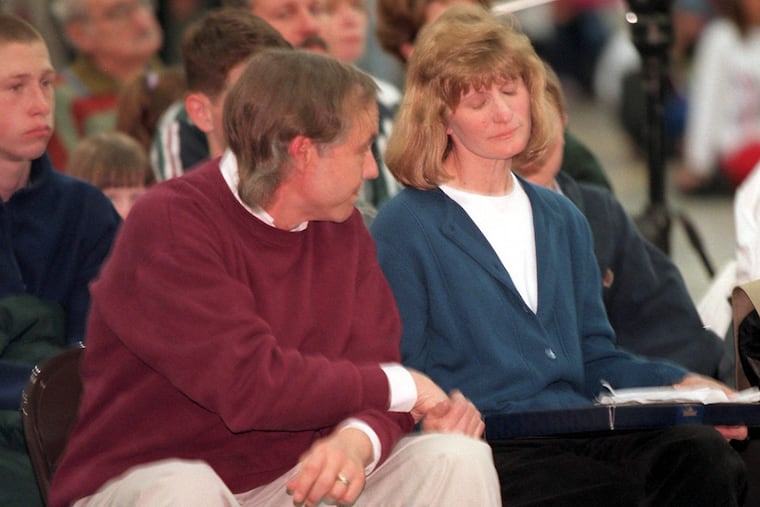911 bill should be dispatched
For any Philadelphian familiar with the story, it's hard to forget the way Eddie Polec died. The 16-year-old was pummeled to death on the steps of St. Cecilia's Roman Catholic Church in Fox Chase as more than a dozen people, including a nun, called 911, only to be abused, ignored, and misunderstood by dispatchers. One caller held out the phone so that a 911 operator could hear the raging battle among teenagers from Abington and Northeast Philadelphia.

For any Philadelphian familiar with the story, it's hard to forget the way Eddie Polec died. The 16-year-old was pummeled to death on the steps of St. Cecilia's Roman Catholic Church in Fox Chase as more than a dozen people, including a nun, called 911, only to be abused, ignored, and misunderstood by dispatchers. One caller held out the phone so that a 911 operator could hear the raging battle among teenagers from Abington and Northeast Philadelphia.
But State Rep. Maria Donatucci (D., Phila.) and 12 other Philadelphia legislators seem to have forgotten that after the brutal 1994 slaying, investigators determined that 911 operators hadn't bothered to dispatch police until 40 minutes after the calls started. By the time help arrived, the boy had died.
Donatucci and her colleagues want to deprive the public of the very information that helped investigators, Polec's parents, and the Inquirer conclude that the city's 911 system had collapsed under the strain of outdated equipment and poor training. Following a public outcry, the city improved training and equipment, reducing the potential for similar tragedies.
The investigations were based partly on the sort of 911 logs and transcripts that Donatucci and her cosponsors now want to suppress. Their bill would block public access to "identifying information" in 911 calls, ostensibly to protect victims and witnesses.
But such victims and witnesses are already protected under exemptions to the state's public-records law. While the law presumes that government records are public, it permits law enforcement officials to prevent their release under certain conditions - for example, if they would jeopardize an ongoing investigation or the safety of those involved. It also protects much of the information in 911 records.
But Donatucci's bill would enable blanket censorship, allowing police departments to cover up inadequacies like those unearthed in the Polec case. It would reverse a Commonwealth Court decision that wisely upheld the public's right to "time response logs," which can help determine whether emergency personnel are responding to calls quickly, correctly prioritizing them, and treating different neighborhoods equitably.
Originally drafted by retired Rep. Joseph Hackett (R., Delaware), Donatucci's legislation is a careless retread that seems to have involved little forethought as to its consequences. Ultimately, it wouldn't help victims, witnesses, or police, who share the public's interest in a system that works.
Unfortunately, the House has passed the bill. The Senate or the governor should return it to the legislative wastebasket.